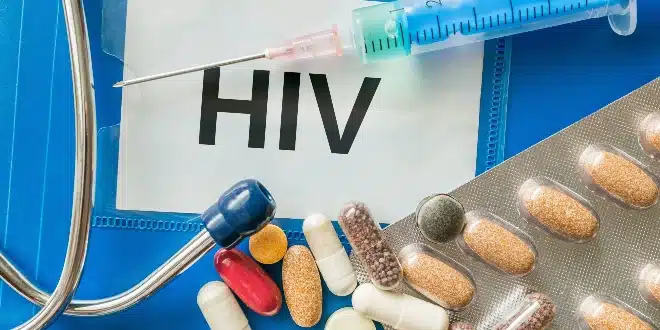A groundbreaking clinical trial conducted in South Africa and Uganda has revealed that biannual injections of a new pre-exposure prophylaxis (PrEP) drug provide young women with complete protection from HIV infection.
The study, sponsored by Gilead Sciences, involved 5,000 participants across three sites in Uganda and 25 in South Africa to test the effectiveness of Lenacapavir along with two other drugs.
“Lenacapavir (Len LA) is a fusion capsid inhibitor that disrupts the HIV capsid, a protein shell that safeguards HIV’s genetic material and enzymes essential for replication. It is administered subcutaneously every six months,” explained Linda-Gail Bekker, the principal investigator for the South African portion of the study, to The Conversation.
The trial also evaluated Truvada, a daily PrEP pill used for over a decade, and Descovy, a newer pill for the same purpose.
During the randomized trial, none of the 2,314 women who received Lenacapavir injections contracted HIV, indicating 100% efficacy. In contrast, 16 of the 1,068 women on Truvada and 39 of the 2,136 women on Descovy contracted the virus.
Following this success, Bekker stated that the trial would proceed in an “open label” phase. “This means participants will be ‘unblinded’ and informed whether they were in the injectable group, oral TDF (Truvada), or oral TAF (Descovy) groups,” she said.
Additionally, a sister trial, Purpose 2, is being conducted in various regions, including some African sites, involving cisgender men, and transgender and nonbinary individuals who have sex with men.
Currently, individuals with HIV require lifelong antiretroviral therapy. Discontinuation of these drugs can cause the dormant virus to reactivate, leading to complications.
Other HIV breakthroughs
Earlier this year, scientists at the University of Amsterdam reported successfully eliminating HIV from infected cells using Nobel Prize-winning Crispr gene-editing technology. This technology acts like molecular scissors, cutting DNA to inactivate or remove harmful segments.
The researchers aim to entirely eradicate the virus from the body, although further work is needed to confirm the method’s efficacy and safety.


